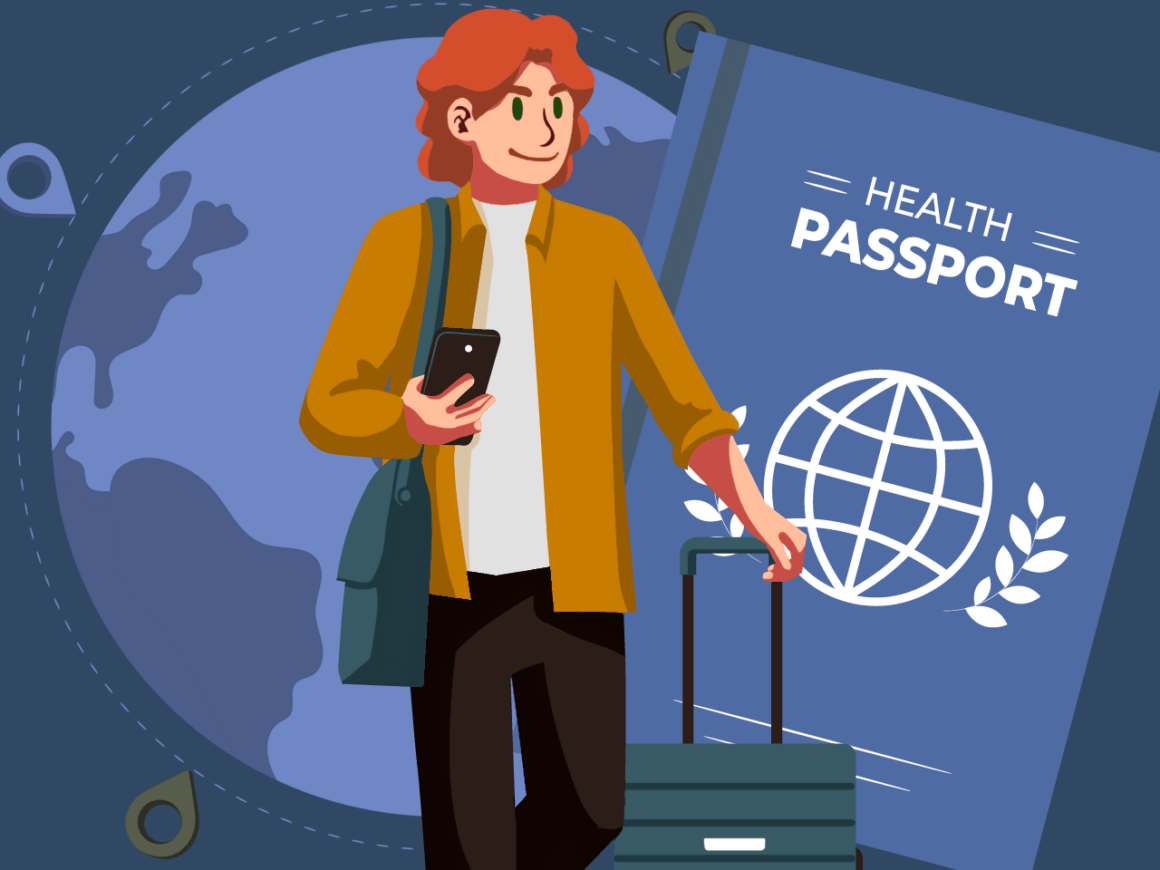What Is It Like To Be an Expat?
I´ve been an expat since I was three years old, and I come from a very culturally diverse background, with most of my family being nomads as well. I´ve moved four times, and now I´m based in Argentina, which I can happily say I consider my home. And while expat life has always been part of my DNA, It´s not always been easy. All I can say for now, though, is that it’s totally worth it.
If you´re considering starting your journey as a digital nomad or simply taking advantage of remote work and relocating to another country, these are some things you would want to know before moving abroad.
I created a moving overseas guide that can help you get the full panorama of what it means to live as an expat.
Moving Abroad Checklist: Key Aspects About Expat Life to Consider
Moving abroad is a different experience for each person. The recommendations and tips can vary depending on who you ask, as some had the best experiences living in another country and others the worst.
In my case, I wouldn´t change a thing. Learning new cultures and understanding different mindsets was a big cultural shock, but it made me grow and pop into the tiny mental bubble I had for many years of my life.
And while I genuinely believe it’s one of the best things you can experience, I´m also aware that expat life is highly romanticized and not for everyone.
Wondering what to know before becoming an expat? These are some of the major considerations you should look into:
1. Visas, Permits, and Legal Documents
Unless you want to visit a country as a tourist, one of the first things to consider is the new country´s rules. This means finding out how easy it is to get a visa to stay there for a long time or a residency.
With remote work as a mainstream, many countries offer digital nomad visas with benefits such as a tax-free residency. So, it’s easier to find a location where you don´t have as many restrictions as you would’ve in pre covid times.
Other aspects to consider:
- Taxes
- Work permits and documentation (take into account these permits change depending on your job, whether you´re a full-time employee, freelancer, entrepreneur, etc.)
- Vaccines
- Insurance
2. Language

Language is never a barrier, but depending on the country or city you choose to live you´ll find it easier or harder to adapt.
If you only speak English, then moving to a country where they also talk English is the safest bet. However, many countries, while they can have a different language, have a large population of English speakers, especially those used to hosting many tourists.
If you´re planning to move to a non-English-speaking country to learn a new language or to practice it, look out for digital nomad communities or local teachers to help you enhance your speaking skills. Also, ask other expats about their experiences in those countries and if they would recommend it.
3. Cost of Living
The cost of living significantly changes from country to country. Here´s a comparison table of different countries taken from WorldData.info: Country Cost index Monthly income Purchasing power index United States 100.0 $5,869 USD 100.0 Mexico 54.7 $782 USD 24.4 England 107.9 $3,682 USD 59.7 Portugal 76.4 $1,978 USD 44.1 Thailand 38.4 $605 USD 26.8 Colombia 41.9 $513 USD 20.9 Singapore 75.0 $5,334 USD 121.1 Australia 118.0 $4,730 USD 68.3 Denmark 119.9 $5,676 USD 80.6 Canada 105.6 $4,026 USD 64.9
You need to make sure that what you earn will be more than enough to support yourself in the new country. Additionally, exploring countries with a lower cost of living can be a great idea to get access to a more comfortable life or increase your savings.
Along the same line, it´s key that you´re aware of the new country´s economic and political situation because this will largely impact your budget and how you live.
When I came to Buenos Aires, I was previously living in Colombia, and the change was huge. I remember feeling everything was way too expensive here, from rent to food, to clothes.
Now, while some things continue to be expensive due to the economic situation, the dollar is so devalued that if you earn in a strong currency, it likely will duplicate. This is one of the reasons why Argentina is becoming a digital nomad hotspot. Unfortunately, for the people earning Argentinian pesos, this is a nightmare.
And while I absolutely love Argentina, the downside of living in an unstable country is that prices change almost on a daily basis, so planning in the long term and saving money becomes extremely challenging.
4. The Lifestyle You Want
Do you love getting immersed in cosmopolitan cities? Or do you prefer being more in touch with nature, enjoying a slow and relaxed lifestyle?
When it comes to questions about living abroad and what factors to consider, one of the most important aspects is to analyze your negotiables and non-negotiables. Basically, this translates into what lifestyle do you want to have?
If you hate cold weather, then moving to a country that it´s almost the entire year cold doesn´t make much sense, right? Even for those moving to another country for work, if you think the money is worth it, maybe a couple of months later, you won´t feel the same way.
Ask yourself: What am I willing to give up? What is important to me that can´t be negotiated?
These simple questions will help you have a wider panorama of how to choose the best place for you. Or if the job offer is definitely worth it.
One of my closest friends, when she moved to Argentina, joked that if she didn´t find the same lemons she used to buy in her home country, she will return. I laughed, knowing it was a joke, but deep inside, I knew those lemons actually mattered to her.
Say culture, language, or politics, so many aspects can completely change your perception of becoming an expat or realizing it´s not truly what you want.
What You Should Consider Before Moving Abroad
When it comes to what expats should know before making the leap, the checklist above is a general guideline that helps you analyze your situation more objectively. However, there are additional aspects that are key for those interested in the expat lifestyle.
Here´s what to know before moving abroad:
FOMO is Normal
FOMO, or Fear of Missing Out, is completely normal when you move to another country. Life changed for you, but nothing changed for your family and friends. Move nights, going to your fav restaurants, to the club where you dance all night, or celebrating birthdays will continue happening without you being there. And that could make you feel nostalgic.
And this is a feeling that evolves with time. Usually, when you arrive in a new country, you have all this adrenaline and excitement. Everything is new, and everything is amazing. But once you start developing a routine, that´s when FOMO hits.
It happens to all expats, and it’s something that, after a while, you start losing because you start creating new memories. When you start meeting new people, making new friends or traveling, you are more focused on living the present than chasing the past, and here´s when FOMO vanishes, but it takes time.
Going Back Home Feels Weird

As controversial as it sounds, after you spend some time abroad, coming back home will feel weird, and what you used to call “Home” will no longer feel like home.
I remember this was something that overwhelmed me at first. When I returned to Colombia, where my parents lived at the moment and where I graduated from high school, while it wasn´t the place I always lived in, it was still a weird feeling. It wasn´t like I remembered, and I felt strange, even when spending time with my best friends, which I enjoyed; for me, it wasn´t the same. Not because they changed but because I changed and had a different mindset.
After talking with other expats about this, I realized it was completely normal. The thing about moving abroad is that it challenges you in every way. You start exploring new adventures, experiencing new feelings, and growing in most areas. So when you return to the place you grew up in, everything feels different.
Making Friends is Hard

This is something that is not often addressed when talking about being a digital nomad or moving to another country.
Some people are lucky enough to find the right people right away. But often, in the first weeks (or even months), you might feel lonely. You´re adjusting to a new life, and learning a new culture, so making friends can become harder.
I remember when I moved to Buenos Aires, I was thrilled to get to know new people, and I imagined making road trips with my new friends. Until I clashed with reality and noticed that even making friends in a new country is different, you´ll meet a lot of new people, but building a solid group of friends takes time, so be patient.
Go to events on your own, look for other expats, and try new experiences! That´s the best way to start making friends.
Get Ready for Paperwork Stress
This is probably the worst part about moving abroad. Paperwork is chaotic, and when you feel you have everything ready, then you´ll probably need different documents and so on.
Of course, this depends on the country you go to. Some countries are more organized than others. But the harsh truth is that usually, things go exactly the opposite way you expect.
What is always helpful is asking people how they handled their paperwork, if they have any tips, or what extra documents you might need, just in case.
Get Familiarized with Feeling Uncomfortable
It´s within our nature to always seek environments where we feel protected and comfortable. And when we go out of our comfort zone, we feel threatened and scared, and we try to avoid it at all costs. But truth be told, this is the best place to learn and grow.
This is something I wish someone had told me when moving abroad. But getting familiar with feeling uncomfortable makes you evolve and adapt faster to a country.
You´ll have thousands of questions, you won´t understand how things work (not even public transportation), and this makes you feel weird. What to do? ASK! Don´t be afraid of asking questions or talking to strangers.
Your Perception of Life Will Change
This sounds a bit dramatic, and it’s not always the case. But it often happens that moving abroad involves expanding your mindset, especially when you leave your home country for years.
You start embracing a new culture. You´ll soon notice that the way people view life changes entirely from country to country.
Coming to Buenos Aires opened my eyes in many ways and helped me define my posture toward different areas of my life.
Recommendations That Helped Me Get The Most of My Expat Experience
From my personal experience, I can identify 3 specific things that helped me the most get the best out of my expat experience.
1) Choose a Country You´re Truly Interested In
Yes, this sounds dumb at first.
But I´ve noticed and talked to friends who want to live in Norway just because of the quality of life when they hate snow or anything related to cool weather. Others want to go to the U.S. to earn higher salaries but have zero interest in their culture.
When you leave your country and move to another one where you don´t want to become part of it, you´ll be thinking about returning in less than six months. Why? Because you´ll get bored, stressed, and anxious. A high salary can be great for the first months, but then what?
When you move to a country that genuinely interests you, you´ll want to adapt and immerse in its culture, which will be fascinating. Making friends with locals, traveling through the country, and tasting their traditional foods, will be part of your life.
2) Expat Groups are Not Everything
When you arrive in a country where you don´t know anyone, expat groups are the best way to get to know people in a similar situation. Most of my first group of friends were people exactly in the same situation as me: new in the country and starting college.
However, I think one of the key parts of why I fell in love with the country was because many of my friends are also Argentinians. This, of course, happens with time. But without realizing it, you´ll start embracing their traditions. For me, without even noticing, I started eating “milanesa” on a weekly basis, and drinking “mate” the same way I drank coffee.
3) Invest in Making Your Place Feel Like Your Home
This will depend on how long you plan to live in the country. But making the place you live cozy by buying plants or things you love is a great way to start feeling at home.
You´ll probably be at an Airbnb or temporary house in the first weeks or months, but if you plan to stay long-term and sign a lease, then start investing in small things that make you happy.
It sounds a bit silly, but in my case, it was the chairs for my balcony. I lived for almost 5 years in the same place, with an amazing view and balcony, but we didn´t have any chairs. Then when we bought them, I remember feeling that was my favorite place in my house! We added lights, a small bbq, and it just felt like home.
Extra Tip: Try New Foods!
While we all have our home country´s favorite meals, a great way to adapt to a new country is through its gastronomy. Don´t be afraid of trying new things! You´ll be surprised how quickly you start craving these new flavors.
So, Is Expat Life Worth It?
If you have been planning for a while to move abroad, this is your sign to do it!
Moving to a new country and culture is hard and overwhelming, but it´s worth it. You´ll meet new people, explore new environments, and have unique experiences.
Ready for new challenges?






